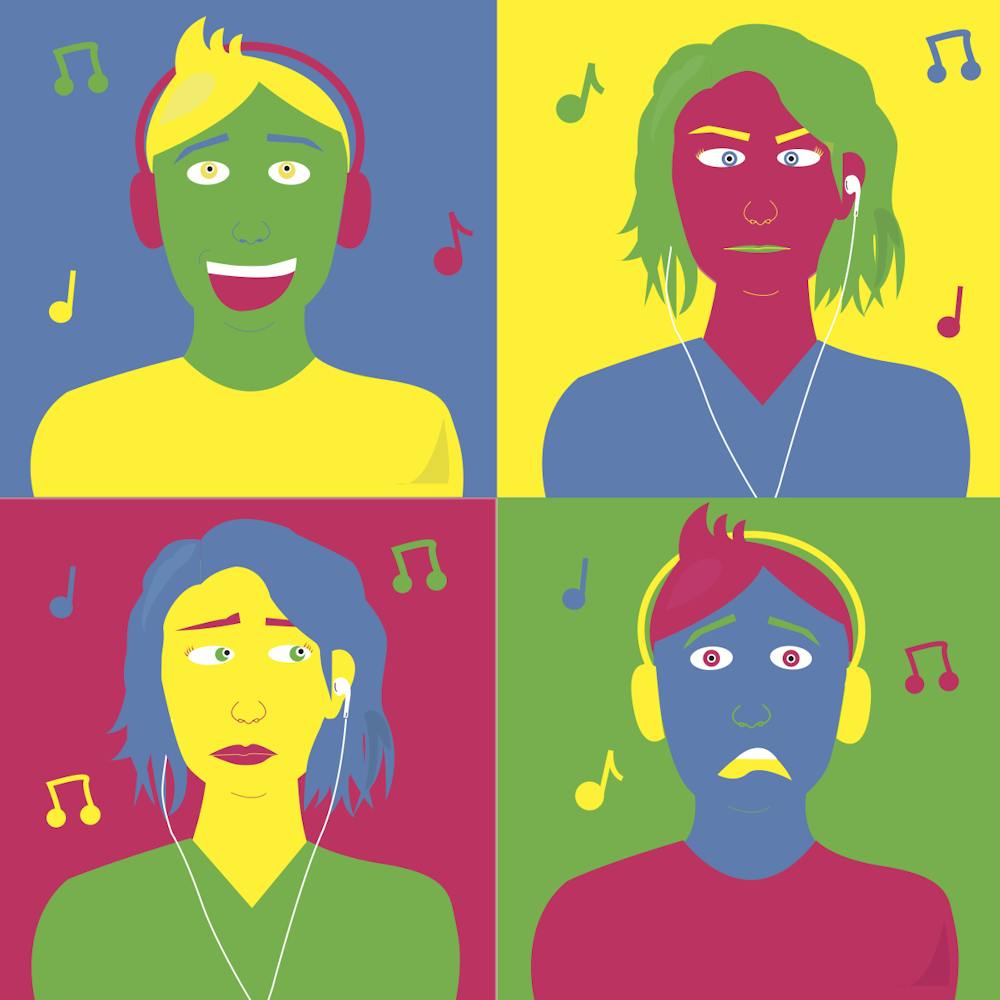With as much time as we invest listening to music, it can have huge effects on our moods, our perspectives on others and our general outlook on life, and we need to be intentional in our usage of it.
Music is the soundtrack to our lives. Whether you prefer listening through AirPods, headphones or straight out of the phone, Americans listen to an average of 26.9 hours of music per week, according to a 2019 study by Amy Watson.
Music has major effects on how we view the world around us. In a study performed by Jacob Jolij and Maaike Meurs at the University of Groningen in 2011, test subjects brought in 15 minutes of songs that made them feel happy and 15 minutes of songs that made them feel sad. They then had the subjects find and identify happy and sad faces in a noisy simulation image. The subjects were able to identify more of the happy faces when they were listening to music that made them happy and more sad while listening to sad music.
Mark Fisher, Larry Shay and Joe Goodwin were on the right track when they wrote the lyrics, “When you’re smiling, / The whole world / Smiles with you.”
If we use music to see more of the good in the world, we can be more of the good in the world. In my experience, being in a good mood can make me more patient, forgiving and generally better to be around. I want those traits to be more evident in my life, and intentionally using uplifting music to improve my mood is a small thing I can do to help produce those aspects.
There have also been various studies on how the lyrics of songs change our behaviors with some rather interesting results. Listening to songs with prosocial lyrics made subjects more likely to be helpful and generous with their time and money.
Dr. Sandra Garrido of the MARCS Institute said music has different impacts on people based on their mental health. While, for mentally healthy people, sad music can help them to work through negative emotions and improve their overall mood, in people who struggle with depression, sad music can promote rumination, or an unhealthy pattern of negative thoughts and feelings.
Researchers Emily Carlson, Suvi Saarikallio, Petri Toiviainen, Brigitte Bogert, Marina Kliuchko and Elvira Brattico published a study in 2015 that studied the effects of music therapy. They tested strategies they classified as solace, diversion and discharge.
Solace occurred when a listener in a negative mood listened to music that corresponded to their mood and left them feeling comforted, and diversion happened when listeners chose music that helped them forget their negative mood altogether. When subjects reported listening to "aggressive or sad music" to express their negative feelings, it was labeled discharge.
The study’s conclusion states, “These results suggest Discharge may be an ineffective or harmful listening strategy in response to negative affect, while Solace and Diversion may provide more effective mood regulation.”
The researchers inferred that, because of discharge’s similarity to rumination, it can be harmful even though it feels like it is helping.
Though music plays a big role in our lives and has a big impact on us, we often don’t pay attention to what we are listening to at any given moment. We need to pay more attention to the effect music has on us and choose music that will help us be the best person we can be, both in action and in personal wellbeing.

